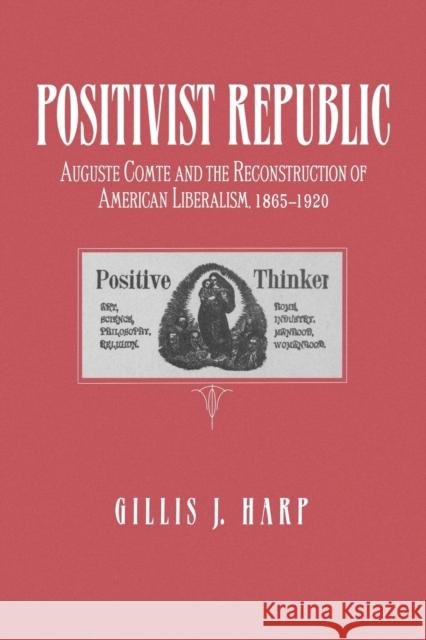Positivist Republic: Auguste Comte and the Reconstruction of American Liberalism, 1865-1920 » książka
Positivist Republic: Auguste Comte and the Reconstruction of American Liberalism, 1865-1920
ISBN-13: 9780271026428 / Angielski / Miękka / 1994 / 264 str.
Historians have long recognized the influence of Darwinism and German idealism on late Victorian intellectual discourse. In Positivist Republic, Gillis Harp argues that, in America, Auguste Comte's positivism constituted another formative influence--one that has not been fully appreciated. In fact, according to Harp, Comtean positivism was critical to the transformation of Anglo-American social and political thought during the last third of the nineteenth century. Harp identifies a thread of Comtean ideas running through the writings of Lester F. Ward, Edward Bellamy, Herbert Croly, and several lesser-known individuals, all of whom played a significant role in Gilded Age and Progressive reform. By highlighting this Comtean thread, Harp furnishes a fuller, more complex picture of the fabric of American political thought in this key transitional period and enhances our understanding of the emergence of modern, corporate liberalism by the start of the twentieth century. Although many of these individuals have received scholarly attention before, Harp is the first to study them together as a discreet community and their work as a body of discourse, thus providing fresh insights to help us understand them in their proper intellectual context.











